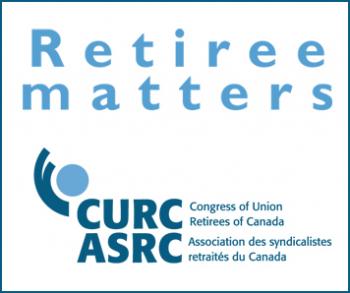Chip in to keep stories like these coming.
Everyone knows about Halloween but few remember that its origin was as the eve of All Saints’ Day on November 1. This day honours not so much the big-name saints like Saint Peter but our ancestors who are now in heaven. Or as Dylan Thomas poetically put it, “those no longer willing with us.” In small Italian towns, on November 1, like the one my wife is from, people go to the cemetery to clean the graves and place fresh flowers on them.
Before the 20th century, death was a regular feature of everyday life. High infant mortality was a fact of life. Today in Canada, death is largely reserved for old age or unexpected events like plane crashes. Where once most deaths occurred at home, today they are more likely to happen in an institution.
Many in the media today link the rising number of seniors to the rising cost of health care. This concern has been answered in part by advocating good home care and long-term care as more cost-effective ways of caring for the elderly compared to hospitals. Much good effort is put into making sure that levels of service are not compromised by either privatization or government cutbacks. While these efforts are needed, they do not really deal with the fundamental question of death. In a way, death is like sex in Victorian England — a taboo topic.
Dr. Atul Gawande, a Boston surgeon who writes in the New Yorker magazine, does an excellent job of taking on this topic in his book Being Mortal: Medicine and What Matters in the End. He does it primarily not through statistics but through the stories of individuals, including his own.
Dr. Gawande described what happened when a young doctor decided to tackle what the latter describes as the three plagues of nursing homes: boredom, loneliness and helplessness. He did so by bringing in life through plants in every room, tearing up the lawn and planting a vegetable and flower garden. He then brought in two dogs, four cats,100 birds, a flock of hens and a colony of rabbits! When researchers examined what happened compared to similar facilities in the area, they found drug costs were down by 38 per cent and deaths by 15 per cent.
Even more important than improving the life in a facility is talking with people about what they want. In LaCrosse, Wisconsin, every patient admitted to a hospital, nursing home and assisted living facility is interviewed by a person trained in end-of-life conversations. The four key questions are:
1. Do you want to be resuscitated if your heart stops?
2. Do you want aggressive treatments such as intubation and mechanical ventilation?
3. Do you want antibiotics?
4. Do you want tube or intravenous feeding if you can’t eat on your own?
The answers were not written in stone but asking them allowed patient, family and doctor to know the general wishes. In fact, what was most important was not the four questions but the discussion. The result was that the end-of-life costs in LaCrosse were half the national U.S. average.
When Atul’s father is diagnosed with cancer, he and his parents who were all doctors with 120 years experience among them faced the same dilemma as every other family in such circumstances. There would be no cure, but how were they going to manage? A nurse from the community hospice played the crucial role in enabling them to go forward.
As Dr. Gawande concludes:
” [O]ur most cruel failure in how we treat the sick and aged is the failure to recognize that they have priorities beyond merely being safe and living longer; that the chance to shape one’s story is essential to sustaining meaning in life; that we have the opportunity to refashion our institutions, our culture and our conversations in ways that transform the possibilities for the last chapters of everyone’s lives.”
Retiree Matters is a monthly column written by members of the Congress of Union Retirees of Canada (CURC) that explores issues relevant to retirees, senior citizens, their families and their communities. CURC acts as an advocacy organization to ensure that the concerns of union retirees and senior citizens are heard throughout Canada.
Chip in to keep stories like these coming.



